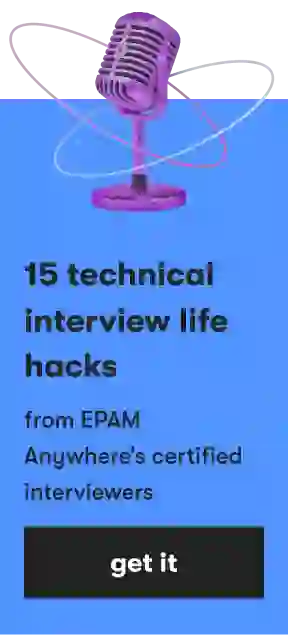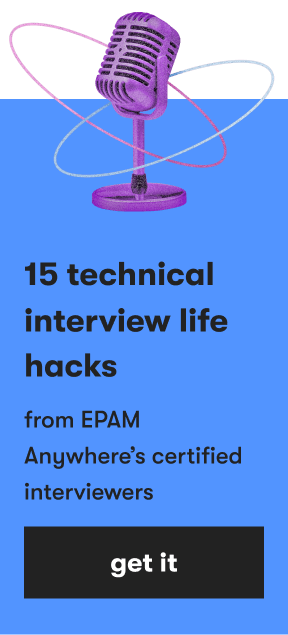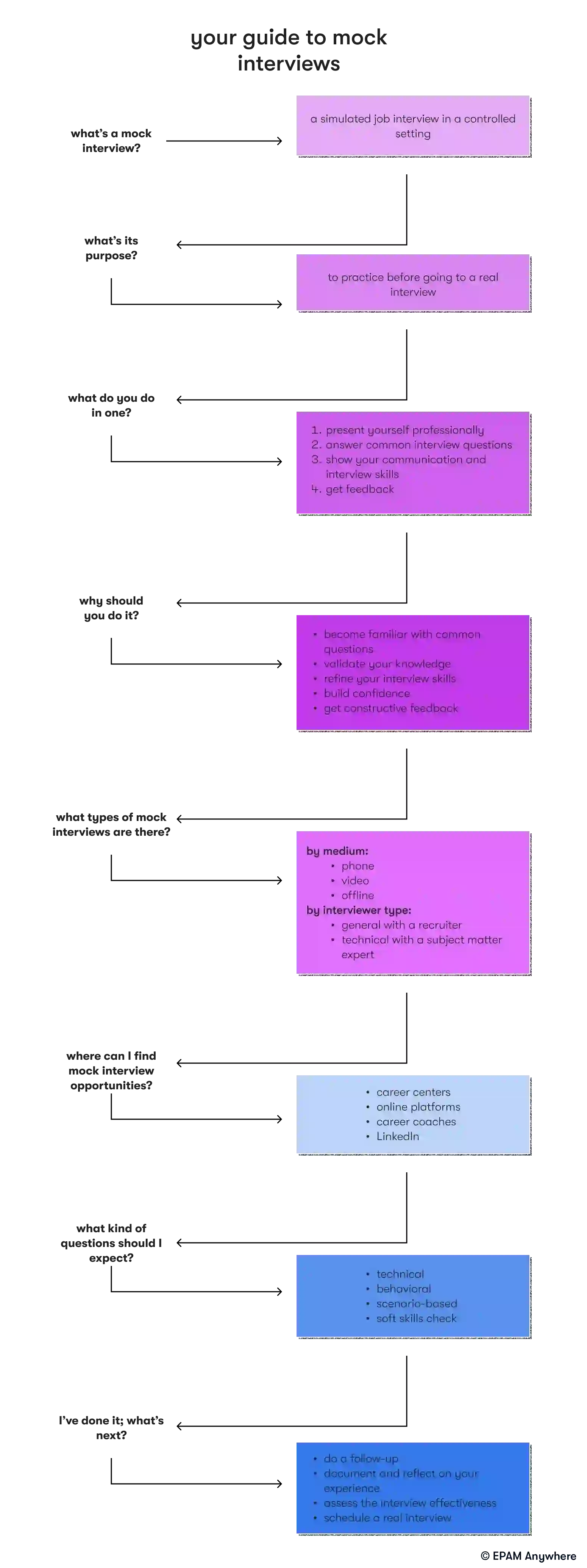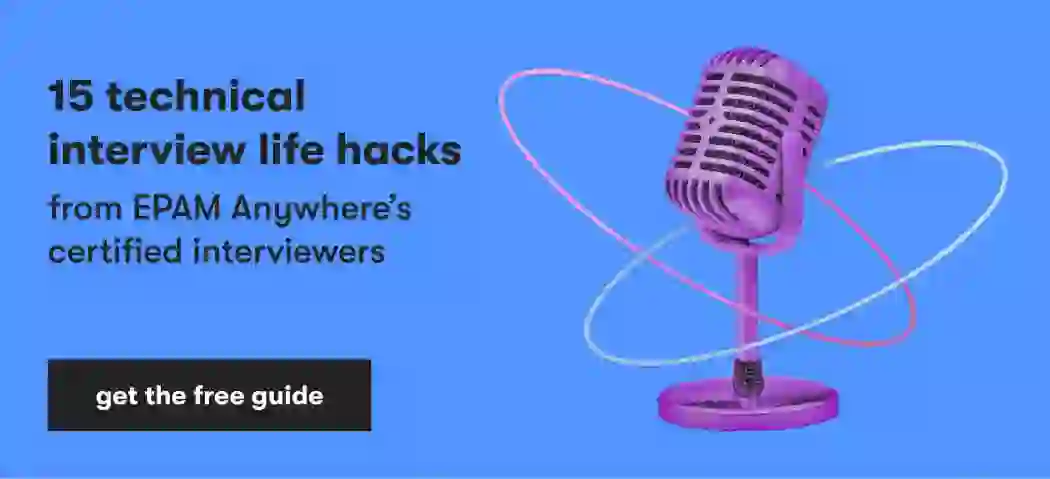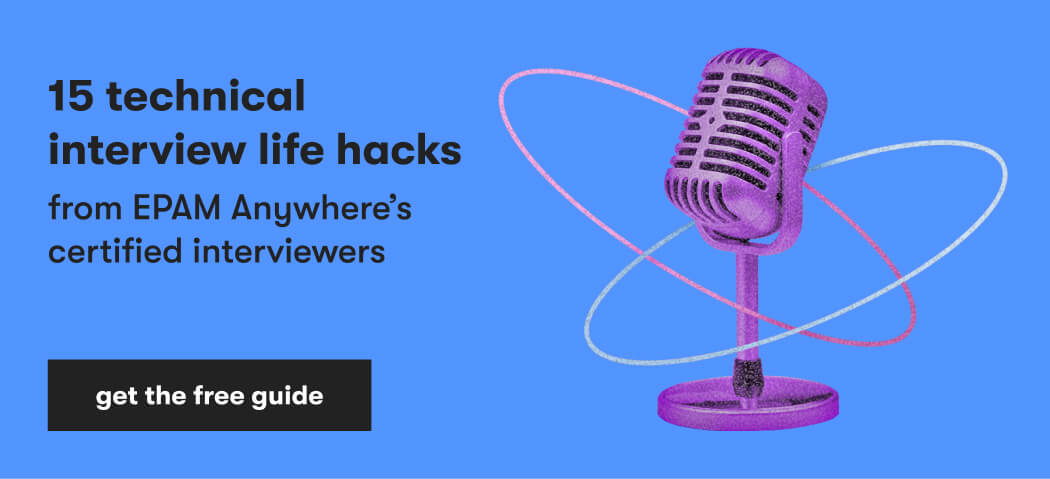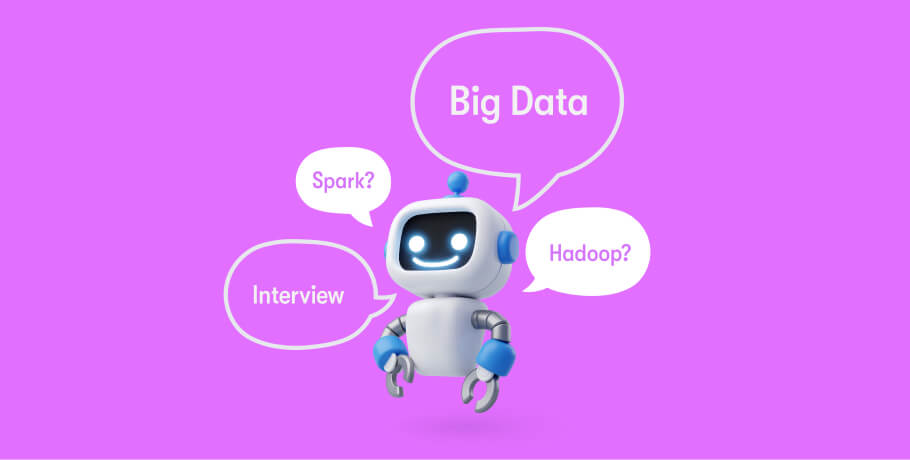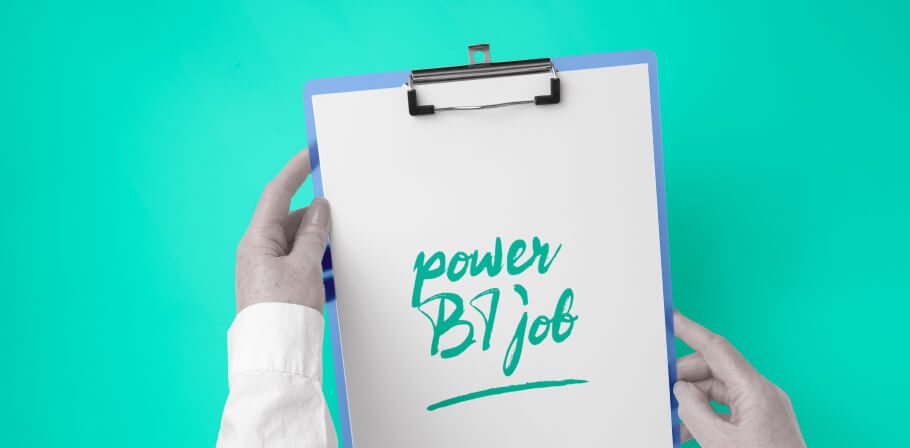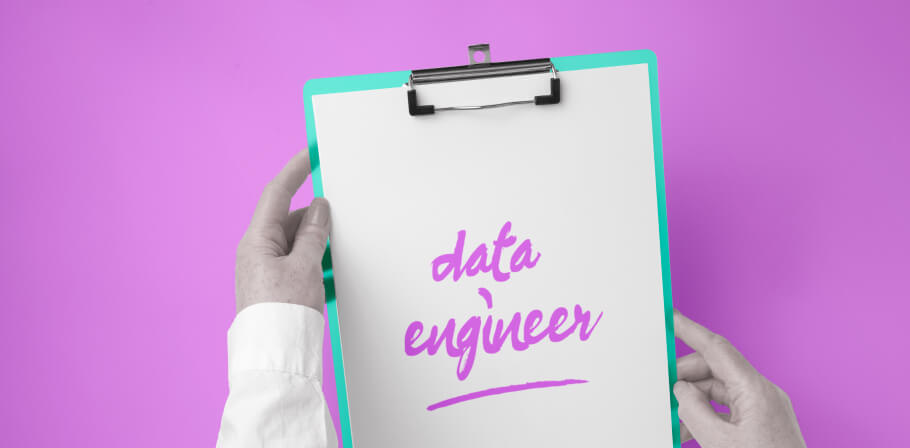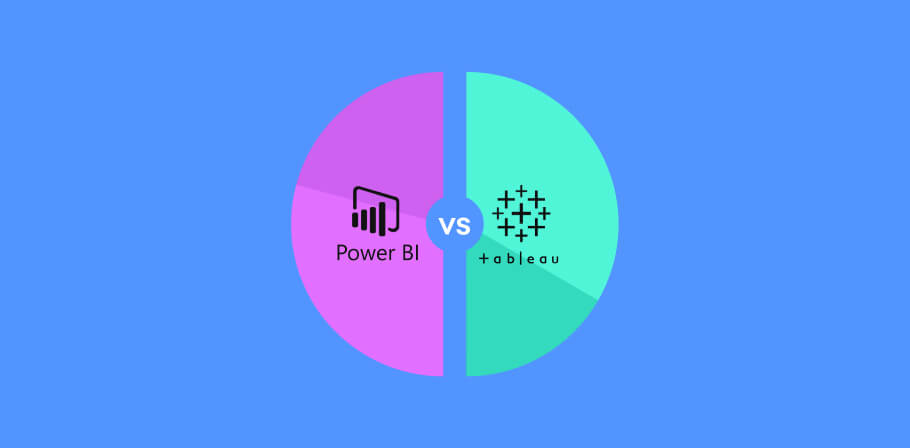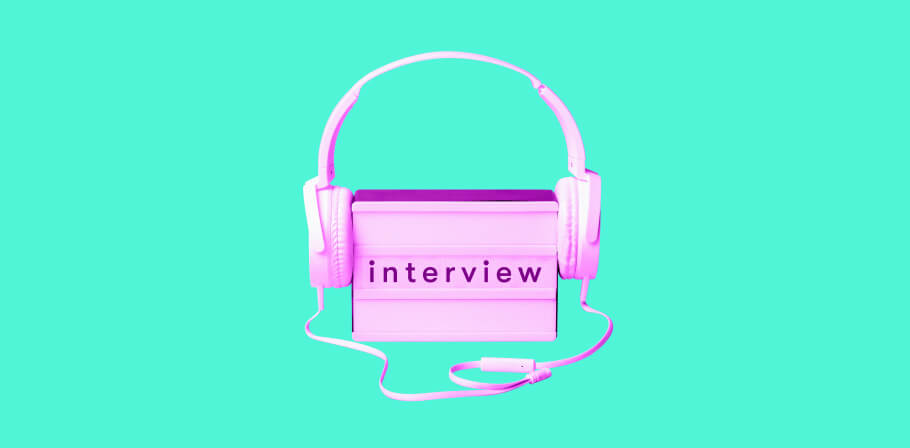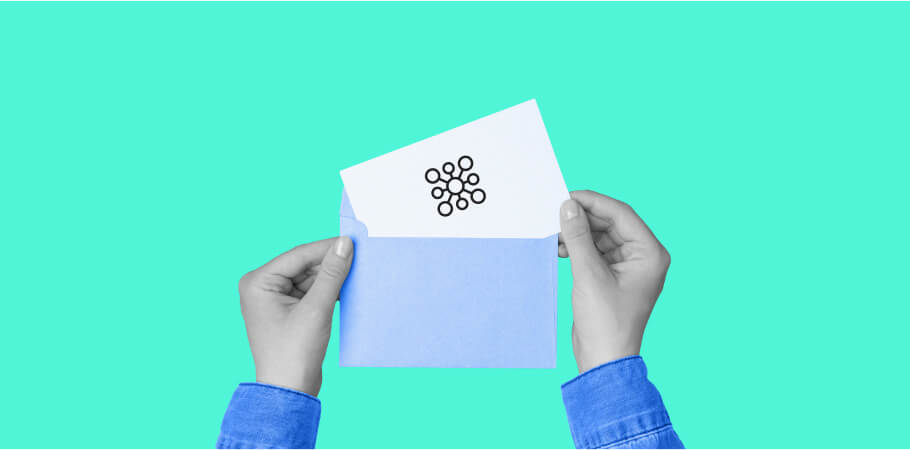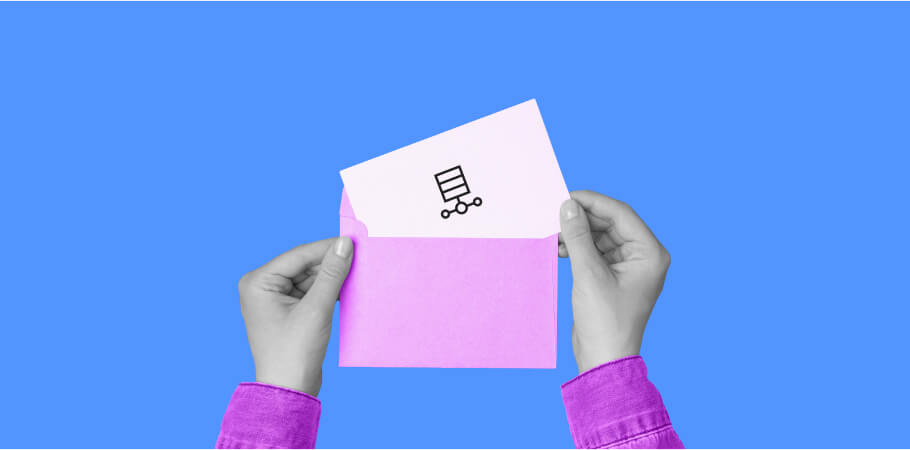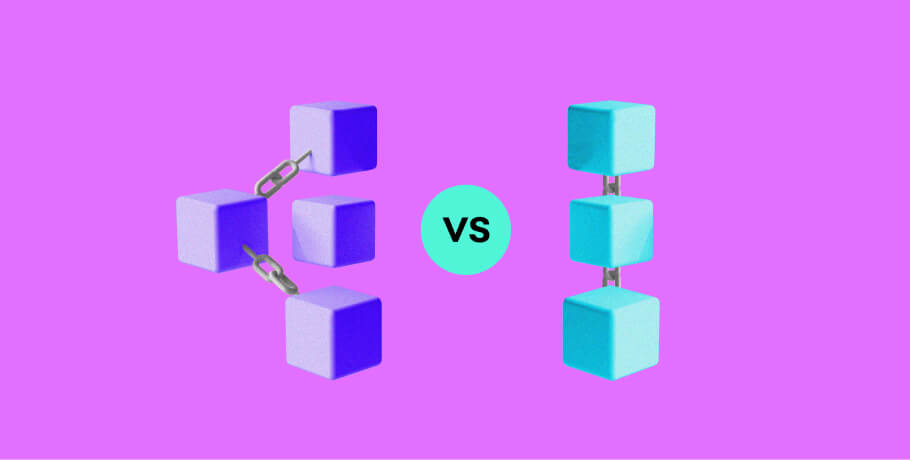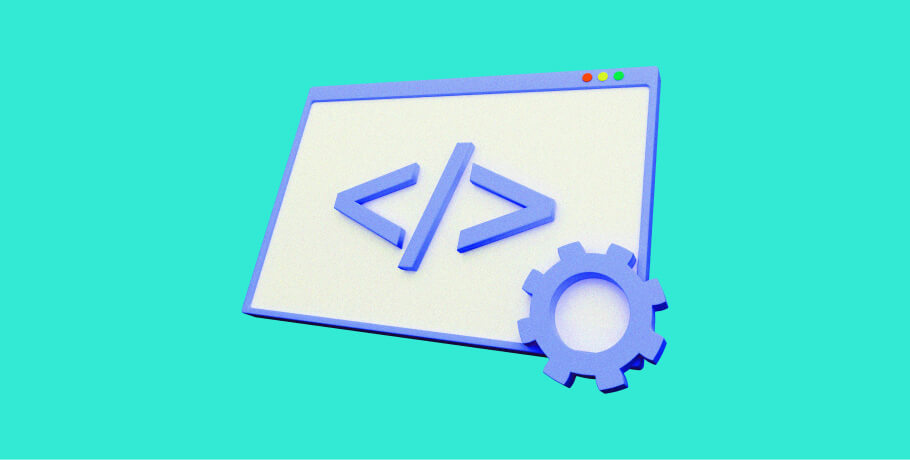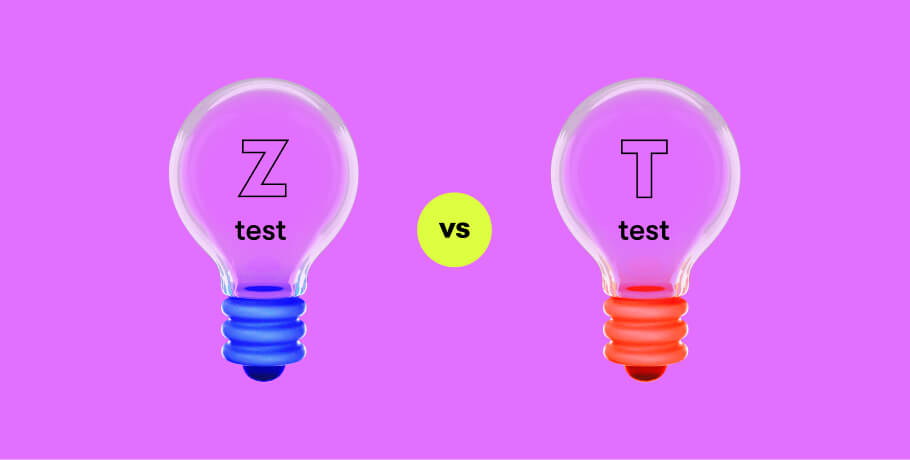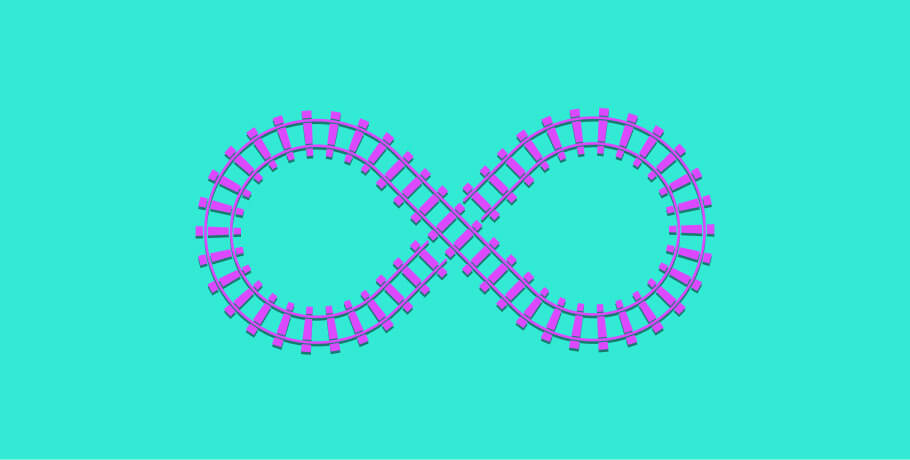When you hear "practice makes perfect," you might think of skills like kickboxing or chess. However, interviewing, believe it or not, is a skill that you can practice with a mock interview.
What is a mock interview? In this article, you'll learn the answer to that question, the benefits of participating in one, how you can use them to build your skills, and the different types of mock interviews out there.
First off, let's start with a simple definition.
Mock interview definition
A mock interview is a simulated or practice interview that resembles a real job interview. People can practice interviewing in a controlled setting before going in for their real one.
By simulating the environment before entering it, potential applicants increase their odds of getting the job. If you've already been there, you'll be more comfortable, avoiding the nerves that come with more uncertain interviews.
For example, tech jobs have the technical interview stage that confirms your skills. Mock interviews can ask questions similar to what you might find here. As a result, you'll be more confident when answering questions related to your tech stack.
Of course, before you participate in the test, it's important to understand how a mock interview operates and how it benefits your personal development.
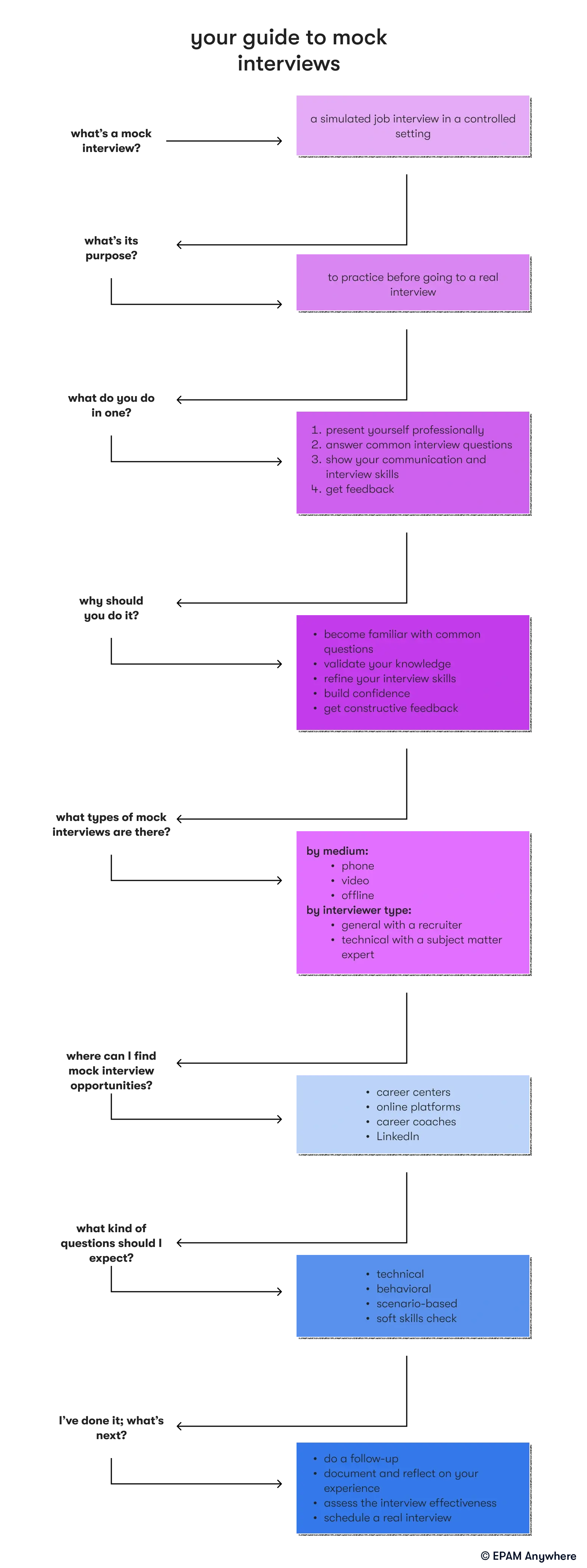
What’s the purpose of a mock interview?
The purpose of a mock interview is to practice before the actual interview. By putting people into the environment, the interview process becomes more comfortable once they go back to the real thing.
We can consider mock interviews a safe space for job seekers. By simulating real interview scenarios, candidates can practice answering common interview questions, develop effective communication and interview skills, and refine their responses.
Through practice, candidates become better equipped to assess the effectiveness of their responses and make necessary adjustments. They can refine their answers, tailor them to specific job requirements, and show their suitability for the role.
Mock interviews provide candidates with valuable feedback on their performance. This feedback can include advice on body language, articulation, and overall interview presentation, helping candidates make adjustments before their actual interviews.
What do you do in a mock interview?
During a mock interview, candidates go through activities that mimic a real interview setting. This includes preparing and presenting themselves professionally, answering common interview questions, and showing effective communication and interview skills.
As you might imagine, not all job interviews look the same. So, think about the job you want and the interview stages you’d likely go through to get it. Let's say that you're applying for a job that follows these stages:
- Introductory interview, known as a phone screen interview
- Group interview
- Technical interview
To give yourself the best chance, you'll want to practice all three stages of the interview process. You can do a fantastic job at one stage, but it doesn't help if you trip before the finish line.
Going back to the question, the "what you do" in a mock interview involves practicing multiple skill types. This means practicing recognizable communication skills, like natural body language and clear verbal communication. It also means knowing the answers to common interview questions before the actual interview.
ready for an interview with us?
Send us your CV for a chance to pass a real interview with our recruiter
What are the benefits of mock interviews?
Mock interviews offer several benefits for job seekers and those interested in boosting their careers:
- Provide valuable practice and experience in a simulated interview environment, allowing candidates to refine their interview techniques, build confidence, and become familiar with common interview questions.
- Offer an opportunity for candidates to receive constructive feedback on their interview performance, including their body language, verbal articulation, and communication skills.
- Allow candidates to tailor their answers and responses based on the research they have conducted on the company and job description.
These benefits break down further depending on the group you belong to: job seekers or career growers.
For new job seekers
- Mock interviews help job seekers become familiar with the interview process. Through mock interviews, they can practice answering common interview questions, learn how to communicate their qualifications and experiences, and understand the expectations of potential employers.
- Through feedback from mock interviewers or career coaches, job seekers can identify weaknesses in their interviewing skills, such as nervousness, lack of eye contact, or poor body language.
- For those targeting certain industries or roles, job-specific mock interviews provide tailored practice for specific job requirements. For example, frontend developers can find specific practice interviews where they answer questions on Angular or other frontend technologies.
To make the most of a mock interview, job seekers should approach it as they would a real interview. This includes thorough preparation, researching the company, reviewing the job description, and practicing responses to common interview questions.
For career growers
Career growers are those who want to boost their salary and/or upgrade their job title in the next stage of their career. We've already mentioned a few situations that apply, but career growers should also keep the following in mind:
- Mock interviews keep those seeking career growth in a "promotion-ready" state. Without practice, interview skills can get rusty, so it helps to practice (even if you already have some interview experience).
- You might identify opportunities for professional development. For example, if you struggle to answer a question, it's an opportunity to learn something new or bolster your knowledge.
- Those seeking career growth will see interview questions related to their leadership skills. Mock interviews for people seeking to grow beyond entry-level positions allow them to practice questions specific to those in experienced fields.
- If going into a more technically demanding field, you can also have the mock interviewers ask more technical questions. Senior backend developers, for example, need a deep knowledge of their tech stack and large data sets.
6 types of mock interviews
Types of mock interviews vary in format and cater to the specific needs of individuals preparing for job opportunities. Here are some common types:
- Telephone: These simulate phone interviews and help candidates practice their communication skills and articulation over the phone. This interview type focuses on conveying professionalism and answering questions without the advantage of non-verbal communication.
- Offline: This replicates an in-person interview setting where candidates face a mock interviewer. This type allows candidates to practice their body language, eye contact, and overall presentation skills.
- Video: With the increasing popularity of remote IT jobs, online mock interviews simulate remote job interviews conducted over video conference platforms. It helps candidates become comfortable with the technology, adjust lighting and background settings, and engage with the interviewer through a screen.
- Technical: This type of mock interview helps hone the technical skills and knowledge needed for questions related to technology, architecture, algorithms, and other such topics. These interviews may involve coding challenges or discussions and debugging quizzes with a real-time code editor. Specific kinds of technical interviews include whiteboard and IDE.
- Whiteboard: In this type, interviewers give candidates coding or technical challenges to solve on a digital whiteboard. Mock whiteboard interviews help candidates sharpen their technical skills and improve their ability to think under time constraints.
- IDE: This stands for Integrated Development Environment, which provides people with a coding environment for immediate feedback. Tools like Visual Studio and RubyMine are examples that focus on different programming languages.
By engaging in different mock interviews, candidates can gain confidence, refine their skills, and better prepare themselves for various scenarios that they may encounter in the actual job search and interview process.
How to get started with mock interviews
To get started with mock interviews, you can leverage various resources such as career centers and online platforms or even enlist the help of a career coach. These resources offer different mock interviews, including phone interviews, in-person interviews, video conference interviews, and technical whiteboard or IDE interviews.
If those resources aren't nearby, consider searching online. Bounce ideas off fellow tech experts from around the world — for example, through LinkedIn. Practicing interviews with friends is a great way to start, but you'll want to check with career coaches to be sure your approach appeals to hiring managers.
Do you need to prepare for a mock interview?
Despite what some may think, it helps to prepare for a mock interview. If you treat the practice like the real thing, your mock efforts will be more worthwhile.
If you're still reading this article, you are on the right track. This means you need to research interview questions, interview strategies, and why you would be the best fit for the job you want. You should start by taking data from that particular job.
Next, you'll want to select a mock interviewer (someone asking the questions). Going with an experienced professional or using mock interview services can provide valuable guidance and feedback based on their expertise. Their insights can help identify weaknesses, improve interview skills, and boost confidence.
Common mock interview questions
Common mock interview questions simulate the questions that you'll be asked during a real job interview. These questions test a candidate's ability to think, communicate, and show relevant skills and experiences. Here are some examples:
General interview questions:
- Tell me about yourself.
- What interests you about this company/role?
- Describe your greatest professional accomplishment.
- What do you consider your biggest professional challenge?
- How do you handle pressure and tight deadlines?
Behavioral interview questions:
- Give an example of a time when you had to resolve a conflict in the workplace.
- Describe a situation where you had to adapt to a significant change. How did you handle it?
- Share a story about a hard decision you had to make at work.
- Tell me about a project where you showed strong leadership skills.
- Describe a situation where you had to meet a challenging goal or deadline.
Situational/scenario-based questions:
- Imagine you're leading a team and a project is falling behind schedule. How would you address this situation?
- You're tasked with launching a new product. Walk me through the steps you would take to make it successful.
- If you encountered resistance from team members in implementing a new process, how would you handle it?
- How would you handle a situation where a client is dissatisfied with your product or service?
- Imagine a scenario where you have to present to the company's board of directors. How would you prepare for it?
The above interview questions cover a range of potential queries related to different topics and scenarios. Your exact questions will of course differ depending on the industry, situation, and experience level required for the job.
Technical questions, like those below, will likewise differ depending on the situation.
Tech interview questions:
Technical knowledge is a big part of landing an IT job. Here are a few examples of tech interview questions to demonstrate this:
- Can you explain the concept of object-oriented programming?
- How would you approach debugging a complex code?
- Can you describe the difference between HTTP and HTTPS?
- Have you worked with any version control systems like Git?
- Can you explain the concept of polymorphism in object-oriented programming?
- How would you optimize a website’s performance?
- Can you describe deploying a web application?
Soft skills check
Soft skills are non-technical skills that are valued by employers during job interviews. While technical skills and specific subject knowledge are important, 85% of job success comes from having developed soft skills.
Employers can teach hard skills over time, but soft skills are more innate and harder to teach. These skills are essential for effective communication, teamwork, problem-solving, and leadership, all of which are crucial in today's professional world.
Some examples of common soft skills that employers look for in candidates include:
- Communication: The ability to convey ideas, listen, and engage in clear and concise communication.
- Adaptability: Being flexible and open to change, and the ability to handle unexpected situations and challenges.
- Problem-solving: Demonstrating critical thinking and analytical skills to find creative solutions to problems.
- Leadership: Showing the ability to take charge, inspire others, and collaborate with diverse teams.
- Time management: Being able to prioritize tasks, meet deadlines, and manage one's time effectively.
- Emotional intelligence: Having the ability to understand and manage one's emotions, as well as empathize with others.
- Teamwork: Working with others, contributing ideas, and resolving conflicts.
Employers recognize these soft skills as they contribute to a positive work environment, effective teamwork, and successful outcomes. By highlighting your soft skills in a mock job interview, your interviewer can provide you with feedback on this before the actual interview.
try out a real tech interview with EPAM Anywhere
Send us your CV for an opportunity to meet with our certified technical interviewers in a real-life setting.
Tips for nailing your mock interview
Preparing for a mock interview is the same as a regular interview. Whether you’re a college student seeking an internship or a professional looking to advance your career, here are some practical strategies and techniques to help you nail your mock interview:
Research the company
A mock interview is most effective when based on an actual interview, so both you and the mock interviewer should know the company when the interview begins.
Researching the company shows them your passion for it. The more you know, the more impressive you can look. Spend some time reviewing the company so you can share your thoughts on why it inspires you.
Practice common interview questions
Anticipate the questions they might ask during the actual interview and practice your responses. We've listed a few question examples above, so take them into consideration. For more examples, check out these interview questions at EPAM Anywhere.
Pay attention to body language
During your mock interview, pay attention to your body language. Maintain good posture, make eye contact, and use hand gestures appropriately to convey confidence and engagement. Avoid fidgeting or crossing your arms, as these can show nervousness or disinterest.
Dress professionally
Treat your mock interview as if it were a real interview and dress professionally. Wearing appropriate attire will not only create a positive impression but also help you feel more confident and capable.
Think before you speak
Take a moment to gather your thoughts before answering each question during the mock interview. By pausing, you can compose well-thought-out responses that showcase your abilities and problem-solving skills.
Ask relevant questions
Toward the end of the mock interview, ask relevant questions about the company, the role, or the hiring process. This shows your genuine interest and engagement in the opportunity. It also means your interviewer needs to know about what questions would be relevant.
Seek feedback
After completing your mock interview, don't forget to seek constructive feedback. Ask your mock interviewer for their honest assessment of your performance and areas where you can improve. Use this feedback to refine your interview skills and make any necessary adjustments before your actual interview.
After the mock interview: what’s next
After the mock interview, there are several important next steps to take in order to make the most of the experience and continue developing your interview skills. Here are some suggestions:
- Conduct follow-up activities: Following the mock interview, it is crucial to engage in follow-up activities to reinforce your learning. This can include reviewing your performance, identifying areas for improvement, and setting goals for future interviews. You might run a "test follow-up email" to check on your written communication as well.
- Coordinate opportunities for reflection: Reflecting on your mock interview experience is essential to gain deeper insights and learning from the process. Discuss your performance with a career counselor, mentor, or trusted friend to gain different perspectives and identify areas for improvement.
- Assess the effectiveness of the mock interview: Evaluate the effectiveness of the mock interview by considering how well it simulated a real interview environment and whether it provided valuable feedback. Identify any strengths and weaknesses in the process to enhance future mock interview experiences.
- Document the experience: Take the time to document your mock interview experience in a journal or portfolio. This could include key learnings, challenges faced, and strategies employed. By documenting your experiences, you can track your growth over time and refer to them when preparing for future interviews.
By taking these next steps after a mock interview, you can maximize the value of the experience and enhance your interview skills for future opportunities. Remember to seek feedback, reflect, and improve to increase your chances of success in actual job interviews.
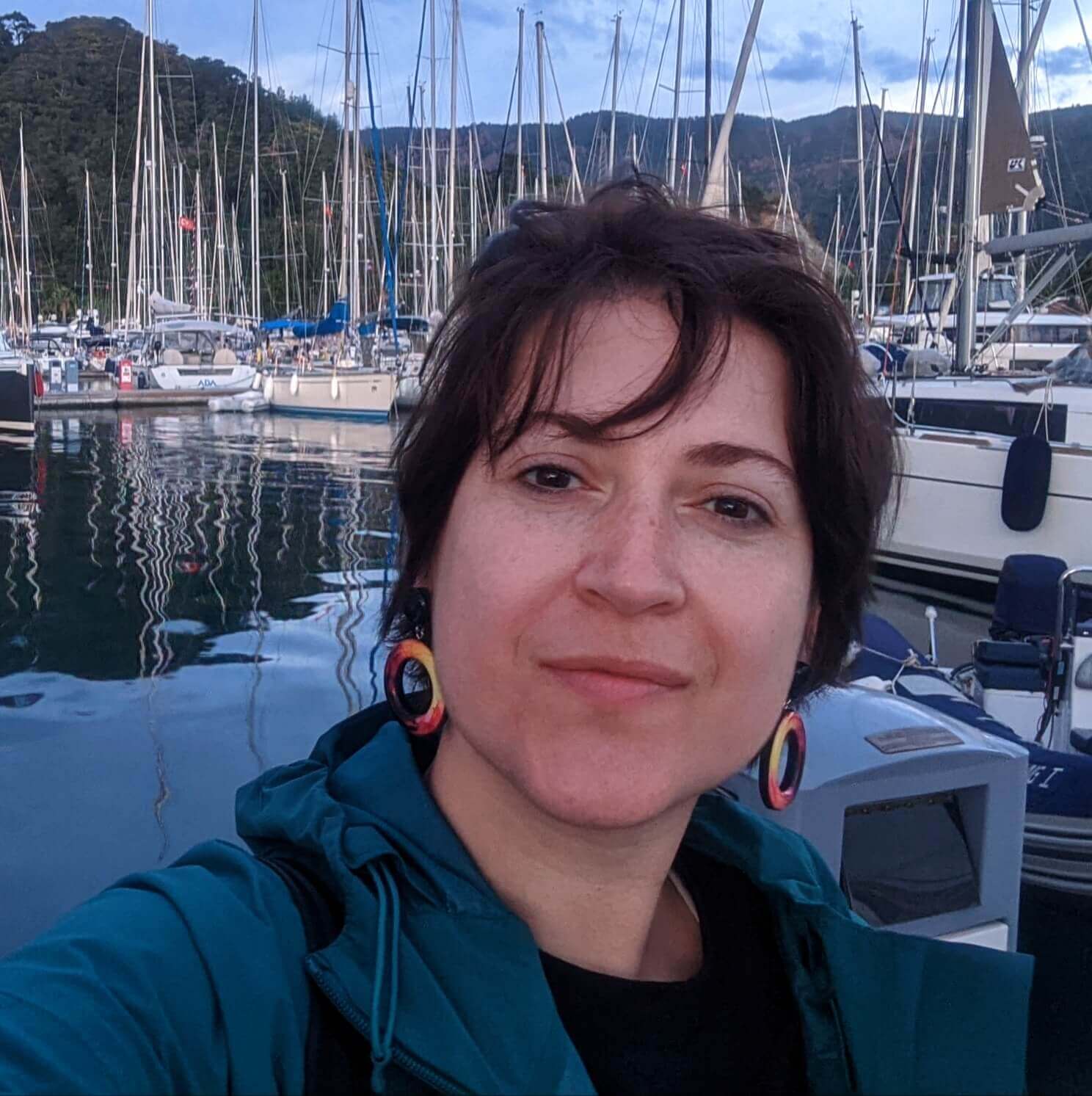
As Chief Editor, Darya works with our top technical and career experts at EPAM Anywhere to share their insights with our global audience. With 12+ years in digital communications, she’s happy to help job seekers make the best of remote work opportunities and build a fulfilling career in tech.
As Chief Editor, Darya works with our top technical and career experts at EPAM Anywhere to share their insights with our global audience. With 12+ years in digital communications, she’s happy to help job seekers make the best of remote work opportunities and build a fulfilling career in tech.
Explore our Editorial Policy to learn more about our standards for content creation.
read more

